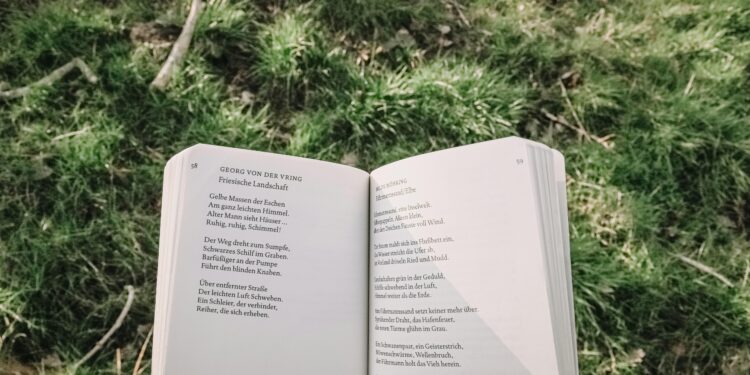Table of Contents
Introduction: The Neglected Garden
There are seasons in life that feel less like a journey and more like a standstill.
For a long time, my season was one of profound spiritual drought.
On the surface, things were fine.
I was busy, productive, ticking all the boxes that the world told me defined a successful woman.
Yet, my inner world felt like a forgotten plot of land, a neglected garden I no longer had the energy to visit.
What was once a space of promise, where I imagined beautiful things could grow, had become a tangle of thorns and weeds.
The soil of my heart was hard, compacted by the relentless pressure to perform, to achieve, to measure up.
The weeds had names I knew all too well: anxiety, comparison, self-doubt, and a deep, gnawing exhaustion that no amount of sleep could remedy.
I had been trying to garden on concrete.
I was using the world’s tools—ambition, self-help, sheer force of will—to cultivate a spiritual life, and the result was predictable: frustration and barrenness.
I was stuck in a rut I couldn’t seem to escape, a feeling many women know intimately.1
The world’s promises of beauty and fulfillment, I was discovering, were just as the Proverb warned: “Charm is deceptive, and beauty is fleeting”.2
They were shallow solutions that left my soul unnourished.
I had read about the spiritual nature of gardening, how it is an activity where we can learn the art of being creatures, where our relationship with a plot of land reveals our relationship with the Creator.3
My neglected garden was a painful mirror of my neglected relationship with God.
The core of my problem wasn’t laziness or a lack of desire; it was misapplied effort.
I was laboring under the illusion that I had to be both the gardener and the sun, the rain, and the soil.
I was trying to force growth, to manufacture life from my own depleted resources.
It was a lonely, impossible task.
What I didn’t understand then was that a garden is a partnership.
The gardener works, yes—tilling, planting, weeding—but it is God who provides the sun, the water, the mysterious life-giving force that turns a dormant seed into a flourishing plant.4
My transformation didn’t begin when I decided to try harder, but when I finally collapsed in my barren plot, covered in dust and despair, and admitted I couldn’t do it alone.
It began when I was ready to meet the Master Gardener.
Chapter 1: The Promise of the Land – Discovering a Purpose
In that place of desolation, when hope felt like a foreign language, a single verse found its way to me.
It felt less like a string of words and more like a legal document, a deed pressed into my hand, granting me ownership of the very land I had deemed worthless.
It was a promise that this abandoned plot—my soul—was not a lost cause.
It was a promise that the Master Gardener had a plan for it.
The verse was Jeremiah 29:11: “‘For I know the plans I have for you,’ declares the LORD, ‘plans for welfare and not for evil, to give you a future and a hope’”.6
For years, I had seen this verse on coffee mugs and inspirational posters, often interpreted as a guarantee of immediate prosperity and a life free from trouble.
But as I sat in my own spiritual exile, the verse’s true context bloomed with staggering relevance.
I learned that Jeremiah wrote these words not to a people living in comfort, but to the Judahites who had been carried off into a long and grueling captivity in Babylon.7
Their reality was one of suffering, loss, and dislocation.
God’s promise was not that their hardship would vanish overnight.
In fact, He told them to settle in, to build houses and plant gardens, because the exile would last seventy years.8
The promise of Jeremiah 29:11, then, was not one of earthly blessing as a replacement for suffering, but of God’s good and sovereign purpose within suffering.7
It was a declaration that even in the midst of a painful, decades-long consequence for their disobedience, God had not abandoned them.
His plans for their ultimate welfare, for their future and their hope, were still intact.
This nuanced understanding was the first drop of rain on my parched soul.
It met me exactly where I was: feeling exiled from joy, from peace, from the presence of God.
The verse wasn’t telling me my struggles weren’t real; it was telling me that God’s purpose was bigger than my struggles.
This newfound understanding was bolstered by another truth I began to unearth.
Ephesians 2:10 says, “For we are God’s masterpiece.
He has created us anew in Christ Jesus, so we can do the good things He planned for us long ago”.9
The word “masterpiece” (from the Greek
poiema, from which we get “poem”) struck me with force.
I had seen myself as a failed project, a fixer-upper, a plot of land so overrun it was better to just pave it over.
But God saw me as His poiema, His work of Art. The land wasn’t just viable; it was valuable, intentionally designed for a beautiful purpose that He had planned long before my season of drought began.11
This re-evaluation of my identity went even deeper when I explored the original meaning of woman’s purpose in Genesis.
In Genesis 2:18, when God says He will make a “helper” for man, the Hebrew word used is ezer.10
In our modern language, “helper” can sound secondary, like an assistant.
But in the Old Testament, the word
ezer is used over twenty times, most often to describe God Himself as Israel’s rescuer and protector in times of dire need.
It implies a vital, powerful strength.10
This was a revelation.
My purpose was not to be a passive recipient of help, but to be an
ezer, a strong co-laborer with God in the work He was doing in the world and in my own soul.
This trifecta of truth began to shift the very foundation of my being.
True purpose, I was learning, wasn’t a specific job title, a relationship status, or a list of accomplishments.
It was a foundational identity.
I was God’s cherished creation (Jeremiah 29:11), His masterpiece (Ephesians 2:10), and a strong partner in His work (ezer).
This knowledge didn’t magically pull all the weeds from my garden, but it did something more important: it convinced me that the land was worth saving.
The Master Gardener had given me the deed and a glimpse of the blueprint.
Now, it was time to pick up a tool and get to work.
Chapter 2: Tilling the Soil and Planting the First Seeds – The Work of Trust
Hope is the blueprint, but faith is the shovel.
Knowing that my inner garden had a divine purpose was one thing; beginning the back-breaking work of reclamation was another.
The soil of my heart was compacted and hard, baked by years of cynicism, pride, and a stubborn insistence on my own understanding.
Before any seeds of new life could be planted, the ground had to be broken.
This was the work of trust—an active, difficult, and utterly essential spiritual discipline.
The words that became my guide for this arduous task were from Proverbs 3:5-6: “Trust in the LORD with all your heart, and do not lean on your own understanding.
In all your ways acknowledge him, and he will make your paths straight”.6
For so long, I had been leaning on my own understanding with all my weight.
I demanded that God’s ways make sense to my finite mind.
I wanted a detailed map, a five-year plan, a guarantee of the outcome before I would take a single step.
This insistence on understanding, I now realized, was the very thing that had hardened the soil of my heart.14
To “lean not on your own understanding” meant actively choosing to let go of my need for control.
It meant accepting that God’s thoughts are not my thoughts, and His ways are higher than my ways.14
It required a posture of surrender, a willingness to approve of God’s ways even when I couldn’t possibly comprehend them.15
This was the spiritual equivalent of driving a tiller into rocky, unforgiving ground.
Every turn of the blades was an act of saying, “I don’t understand this, God, but I trust You.” Every broken clod of earth was a release of my own pride and a small patch of soil made ready for Him.
This abstract principle of trust found its most beautiful and tangible expression in the story of a young woman who faced an incomprehensible command.
As I tilled the soil of my own heart, the life of Mary became my inspiration.
Elizabeth’s blessing over her in Luke 1:45 resonated with my struggle: “Blessed is she who has believed that the Lord would fulfill the promises he made to her!”.9
The commentaries I read pointed out a profound detail: Mary is declared blessed (
makaria, the same word used in the Beatitudes) not for her status as the mother of the Lord, but for her act of believing.17
Her faith stands in delicate contrast to that of Elizabeth’s own husband, Zechariah.
He, a seasoned priest serving in the temple, was met with an angelic promise and responded with doubt, asking for a sign.
He leaned on his own understanding of biology and old age and was struck silent.17
Mary, a young, poor, peasant girl, was met with an even more impossible promise—a virgin conception—and responded not with a demand for proof, but with a question of process (“How will this be?”) followed by complete surrender: “I am the Lord’s servant.
May your word to me be fulfilled”.18
She chose to believe.
Her story presented me with a clear choice in my own life.
I recalled a time when I was facing a difficult decision, one where the logical, “sensible” path was clear, but I felt a quiet, persistent nudge from God toward a different, riskier Way. My inner Zechariah was loud, listing all the reasons it wouldn’t work, demanding proof that I wasn’t making a terrible mistake.
But thinking of Mary, of her quiet courage, I made a different choice.
I chose to believe the promise I felt God had whispered to my heart, even though it seemed foolish to my own understanding.
That decision, that small, terrifying act of faith, was the first seed I intentionally planted in the newly tilled soil of my soul.
It was a tiny green shoot of trust in a field that had long been barren.
As Elizabeth’s words echoed in my mind, I understood that the blessing wasn’t in the outcome, but in the believing itself.
That was the act that made the heart fertile for a miracle.
Chapter 3: Nurturing the Seedlings – Cultivating Inner Strength and Dignity
Once the ground is tilled and the first seeds of trust are sown, the gardener’s work shifts.
It becomes a daily, patient rhythm of cultivation: watering, weeding, watching for growth.
In my spiritual garden, this meant nurturing the fragile seedlings of faith into strong, resilient plants.
I began to learn that my true identity was not defined by the fleeting praise of others or by my external accomplishments, but by the internal character I was cultivating in partnership with God.
The most beautiful and empowering Bible verses, I discovered, were not meant to be mere decorations for my life, but the very nutrients that would build a life of substance from the inside O.T.
The verse that became the trellis for this new growth was Proverbs 31:25: “She is clothed with strength and dignity; she can laugh at the days to come”.16
For a long time, the “Proverbs 31 woman” had felt like an impossible, intimidating standard.
But as I began to see my life through the lens of a garden, this verse transformed.
It wasn’t a checklist of duties, but a description of the beautiful harvest that grows from a well-tended soul.
I learned to “wear” these virtues like a gardener wears their work clothes—not for show, but because they are practical, essential, and define the work being done.
Delving into its meaning, I saw that the “strength” described is not physical prowess but an inner fortitude—a strength of character and moral courage.20
It is the resilience of a plant that bends in the wind but does not break.
This strength is built through diligence, through showing up day after day to do the necessary work of faith, even when it feels tedious.
The “dignity” is a quiet confidence that comes from honorable conduct and a life aligned with God’s priorities.20
It is the natural beauty of a healthy, thriving plant, which needs no artificial adornment.
The Bible often uses clothing as a metaphor for our spiritual state, from the fig leaves of Adam and Eve to the armor of God.20
To be “clothed with strength and dignity” meant that these inner qualities were becoming my most visible and defining feature.
The most profound part of the verse for me was its result: “she can laugh at the days to come.” This wasn’t the laughter of arrogance or naive optimism.
It was the deep, peaceful laughter of a gardener who has done her work, trusted the process, and knows that the harvest is in God’s hands.
It is the laughter of a woman who no longer wrings her hands in worry over the future because her trust in the Master Gardener is absolute.20
This confident peace is the direct fruit of the trust I had worked so hard to cultivate in the previous season.
This focus on inner cultivation was beautifully echoed in 1 Peter 3:3-4, which urges women to find their beauty not in “stylish hair or by wearing gold jewelry or fine clothes,” but in the “unfading beauty of a gentle and peaceful spirit,” which the verse says is “very precious in God’s eyes”.2
This gentle and peaceful spirit was the tender plant I was learning to nurture.
It couldn’t be forced or faked; it had to be grown in the soil of trust and watered with daily communion with God.
And as this inner plant grew stronger, I began to see external fruit.
Proverbs 31:26 notes, “She opens her mouth with wisdom, and the teaching of kindness is on her tongue”.9
I started to notice small changes in my own life.
A reactive, sharp word was replaced by a moment of patient silence.
An anxious complaint was transformed into a quiet prayer.
The strength and dignity being cultivated within were beginning to express themselves in the way I spoke to my family, my friends, and myself.
The garden was no longer just a place of internal work; its fragrance was beginning to drift out into the world around me.
Chapter 4: Weathering the Storms – Finding an Unshakeable Refuge
No garden, no matter how well-tended, is immune to storms.
There are seasons of drought, infestations of pests, and violent gales that threaten to uproot the most established plants.
Just as my inner garden was beginning to flourish, a storm hit my life.
It came in the form of an unexpected health crisis that brought with it a tidal wave of fear and uncertainty.
My initial, panicked reaction was to grab the promises of Scripture and wield them like a magic incantation, believing that if I just quoted the right verses with enough faith, the storm would immediately cease.
I clung to verses like Psalm 46:5: “God is in the midst of her; she shall not be moved”.23
I wrote it on sticky notes, repeated it like a mantra, and demanded that its promise manifest in the form of a clean bill of health.
But the winds of my circumstance continued to howl.
The fear did not abate.
This was a critical, painful moment of reckoning.
Was the promise a lie? Or had I misunderstood the nature of the promise itself?
My deepest transformation came when I learned to read this verse not as a promise of immunity from the storm, but as a promise of God’s unwavering presence in the storm.
Through study, I learned that the “her” in this verse is not, in its original context, an individual woman.
It is the city of God, Jerusalem—a place of refuge for His people.25
The promise is not that the individual citizens within the city will never stumble, trip, or feel the battering of the siege.
The promise is that the city itself, the fortress where God dwells, will not fall.
God’s presence is the unshakeable foundation.27
This changed everything.
I was not a lone warrior who would never fall; I was a resident of an impregnable fortress.
The storm was real, and it was terrifying, but I was safe
within the walls of God’s love.
The verse wasn’t a roof to stop the rain; it was the bedrock that could not be washed away.
I had a similar revelation with another verse I had often misused: Philippians 4:13, “I can do all things through him who strengthens me”.6
In the past, I had applied this verse to my ambitions—acing a presentation, running a marathon, achieving a personal goal.
I treated it like a divine energy drink.
But now, in the midst of my trial, I learned its true context.
The Apostle Paul wrote these words from a prison cell, facing the possibility of execution.28
He wrote them immediately after saying he had learned the secret of being content whether he was hungry or well-fed, in need or in plenty.29
The “all things” he could do was not “anything I set my mind to.” The “all things” was endurance.
He could endure hunger.
He could endure imprisonment.
He could endure uncertainty.
He could endure suffering.
He could do all this—this hard, painful, present reality—through the strength Christ gave him.29
For me, this was a lifeline.
The verse was not promising that I could magically heal myself or control my circumstances.
It was promising that I had access to a supernatural strength to
get through this day.
It was the sturdy trellis that holds the vine fast in a gale, allowing it to survive until the sun shines again.
This period of my life redefined my understanding of spiritual victory.
Victory was not the absence of struggle.
Victory was enduring the struggle with my faith intact.
It was learning to trust that even when the winds tore at the leaves and the rain flooded the soil, the roots of my soul were anchored in the unshakeable presence of the Master Gardener.
The storm did not destroy my garden; it forced the roots to grow deeper.
Conclusion: The Abundant Harvest – A Life in Full Bloom
The storm eventually passed, as all storms do.
In its wake, I surveyed my inner garden.
It was not unscathed—there were broken branches and tender leaves that had been torn.
But it had not been destroyed.
In fact, it was stronger, more resilient.
The colors seemed richer, the air clearer.
My life was no longer a barren wasteland but a place of quiet beauty, peace, and fruitfulness.
I had learned that spiritual gardening is not a one-time project with a final completion date, but a continuous, beautiful cycle of planting, growth, storms, rest, and renewal.
I had learned the rhythm of the Gardener.
The final piece of this new life fell into place with a verse that speaks of this sacred rhythm: Isaiah 40:31, “…but they who wait for the LORD shall renew their strength; they shall mount up with wings like eagles; they shall run and not be weary; they shall walk and not be faint”.19
For years, the word “wait” had sounded passive to me, like sitting in a waiting room, idly flipping through magazines.
But I learned that the original Hebrew word,
qavah, is anything but passive.
It means to bind together, to twist, to collect.
It carries the idea of a rope pulled taut with tension and expectation.31
It is the active, hopeful, expectant waiting of a gardener in the dead of winter, who diligently prepares the soil and protects the dormant roots, trusting with every fiber of her being that spring
will come.4
It is not idleness; it is a work of profound faith.
This active waiting is what renews our strength.
And with that renewed strength comes a new perspective.
The promise to “mount up with wings like eagles” is not just about feeling powerful; it is about gaining a higher vantage point.31
From the ground, a gardener can only see the immediate patch of dirt, the single wilting plant, the encroaching weed.
But from the sky, the eagle sees the whole landscape—the seasons of loss and growth, the fallow fields and the flourishing ones—and understands its beauty as an integrated whole.
This is the perspective I had gained.
I could now look back on my season of drought and my season of storm and see them not as failures, but as essential parts of the garden’s story, the very processes that enriched the soil and deepened the roots.
My journey had come full circle, but I was not the same woman who had stood despairing in a field of weeds.
The transformation was real, the harvest abundant.
But it was a harvest I could not claim as my own.
The words of the Apostle Paul in 1 Corinthians 15:10 became my own testimony: “But by the grace of God I am what I am, and his grace to me was not without effect.
No, I worked harder than all of them—yet not I, but the grace of God that was with me”.9
My garden is beautiful today because of a divine partnership.
I did the work—I tilled, I planted, I weeded, I waited.
But it was the grace of God that was with me, providing the sun, the rain, and the miracle of life itself.
He is the Master Gardener, and I am His humble, grateful co-laborer, forever tending the beautiful soul He entrusted to my care.
A Gardener’s Toolkit: God’s Word for the Work
| The Gardener’s Task | God’s Word for the Work |
| Receiving the Deed to the Land | Jeremiah 29:11: “For I know the plans I have for you… plans to give you a future and a hope.” |
| (Discovering Your God-Given Purpose) | Ephesians 2:10: “For we are God’s masterpiece, created in Christ Jesus to do good works…” |
| Tilling the Hard Soil | Proverbs 3:5-6: “Trust in the LORD with all your heart and lean not on your own understanding…” |
| (Choosing to Trust) | Luke 1:45: “Blessed is she who has believed that the Lord would fulfill his promises to her!” |
| Cultivating Daily Growth | Proverbs 31:25: “She is clothed with strength and dignity; she can laugh at the days to come.” |
| (Nurturing Inner Beauty) | 1 Peter 3:4: “…the unfading beauty of a gentle and quiet spirit, which is of great worth in God’s sight.” |
| Weathering Life’s Storms | Psalm 46:5: “God is in the midst of her; she shall not be moved.” |
| (Finding Strength in Trials) | Philippians 4:13: “I can do all this through him who gives me strength.” |
| Soaring Over the Harvest | Isaiah 40:31: “…they who wait for the LORD shall renew their strength; they shall mount up with wings like eagles…” |
| (Living in Renewed Hope) | 1 Corinthians 15:10: “But by the grace of God I am what I am… yet not I, but the grace of God that was with me.” |
Works cited
- 12 BIBLE VERSES FOR EVERY WOMAN WHO NEEDS STRENGTH AND REASSURANCE, accessed August 9, 2025, https://www.livingchristian.org/bible-verses-blogs/12-bible-verses-for-every-woman-who-needs-strength-and-reassurance
- 21 Inspirational Bible Verses for Women – Tithe.ly, accessed August 9, 2025, https://get.tithe.ly/blog/21-inspirational-bible-verses-for-women
- Spiritual Gardening | October 2, 2009 | Religion & Ethics … – PBS, accessed August 9, 2025, https://www.pbs.org/wnet/religionandethics/2009/10/02/october-2-2009-spiritual-gardening/4439/
- Lessons from the Garden — Welcome to Loto Wellness, accessed August 9, 2025, https://www.lotowellness.co/journal/lessons-from-the-garden
- The Spiritual Practice of Gardening – A Sacred Journey, accessed August 9, 2025, https://www.asacredjourney.net/the-spiritual-practice-of-gardening/
- Verses That Empower Women – Prison Fellowship, accessed August 9, 2025, https://www.prisonfellowship.org/resources/support-friends-family-of-prisoners/prisoner-resources/verses-that-empower-women/
- Jeremiah 29:11 | Tabletalk, accessed August 9, 2025, https://tabletalkmagazine.com/article/2019/08/jeremiah-2911/
- “For I know the plans I have for you” – Contextual Understanding of Jeremiah 29:11, accessed August 9, 2025, http://www.rhema.org.uk/2021/03/27/contextual-exploration-of-jeremiah-2911/
- 10 Bible Verses Every Woman Should Know to Find Encouragement and Strength in Faith, accessed August 9, 2025, https://christfollowerlife.com/blogs/christ-follower-life-blog/bible-verses-every-woman-should-know
- God’s Purpose for Every Woman – Rhema, accessed August 9, 2025, https://events.rhema.org/gods-purpose-for-every-woman/
- 32 Verses for Women Affirming Beauty, Value & A Beloved Identity in Christ, accessed August 9, 2025, https://www.purposefulfaith.com/affirming-beauty/
- 35 Bible Verses About Women to Empower and Encourage – Woman’s Day, accessed August 9, 2025, https://www.womansday.com/life/inspirational-stories/g29199258/bible-verses-about-women/
- 15 Bible Verses to Encourage You – Concordia University Texas, accessed August 9, 2025, https://www.concordia.edu/blog/15-bible-verses-to-encourage-you.html
- What does it mean to lean not on your own understanding (Proverbs 3:5)? – Got Questions, accessed August 9, 2025, https://www.gotquestions.org/lean-not-own-understanding.html
- “What does Proverbs 3:5-6 mean in practical terms?” : r/Bible – Reddit, accessed August 9, 2025, https://www.reddit.com/r/Bible/comments/1iv7bid/what_does_proverbs_356_mean_in_practical_terms/
- 45 Uplifting Bible Verses About Women – Parade, accessed August 9, 2025, https://parade.com/living/bible-verses-about-women
- Commentary on Luke 1:39-45 [46-55] – Working Preacher from …, accessed August 9, 2025, https://www.workingpreacher.org/commentaries/revised-common-lectionary/fourth-sunday-of-advent-3/commentary-on-luke-139-45-46-55-3
- Luke 1:45 Commentaries: “And blessed is she who believed that there would be a fulfillment of what had been spoken to her by the Lord.” – Bible Hub, accessed August 9, 2025, https://biblehub.com/commentaries/luke/1-45.htm
- 40+ Powerful Bible Verses About Strength to Lift Your Spirit | Bible Study Tools, accessed August 9, 2025, https://www.biblestudytools.com/topical-verses/strength-bible-verses/
- She Is Clothed in Strength and Dignity – Proverbs 31:25 Meaning …, accessed August 9, 2025, https://www.crosswalk.com/faith/bible-study/what-does-she-is-clothed-with-strength-and-dignity-mean-in-proverbs-31.html
- She Is Wearing Strength and Honor (Proverbs 31:25) – A Ruby in the Rough, accessed August 9, 2025, https://www.arubyintherough.com/ladies-bible-study/proverbs-31-25/
- Fixing Our Eyes on God (Proverbs 31:25) – Radical.net, accessed August 9, 2025, https://radical.net/podcasts/pray-the-word/fixing-our-eyes-on-god-proverbs-3125/
- Top 25+ Bible Verses about Women: Inspirational Scriptures, accessed August 9, 2025, https://www.biblestudytools.com/topical-verses/bible-verses-for-women/
- 20 Best empowering bible verses for women – Majestic Women Inc, accessed August 9, 2025, https://majesticwomen.com/index.php/2019/04/01/20-best-empowering-bible-verses-for-women/
- God is Within Her She Will Not Fall – Psalm 46:5 Promise | Bible Study Tools, accessed August 9, 2025, https://www.biblestudytools.com/bible-study/topical-studies/beautiful-truth-in-the-promise-god-is-within-her-she-will-not-fall.html
- What is the significance of the statement “God is within her; she will not fall” in Psalm 46:5?, accessed August 9, 2025, https://www.gotquestions.org/God-is-within-her-she-will-not-fall.html
- What Does Psalm 46:5 Mean by ‘God Is with Her She Will Not Fall …, accessed August 9, 2025, https://www.crosswalk.com/faith/bible-study/what-does-psalm-46-mean-by-god-is-with-her-she-will-not-fall.html
- Victory Through Suffering: The True Meaning of Philippians 4:13 – The Gospel Coalition, accessed August 9, 2025, https://www.thegospelcoalition.org/article/victory-suffering/
- The meaning of Philippians 4:13: “I can do all… | Zondervan Academic, accessed August 9, 2025, https://zondervanacademic.com/blog/philippians-4-13
- www.pinterest.com, accessed August 9, 2025, https://www.pinterest.com/pin/100627372907331815/#:~:text=She%20is%20strong%20%2D%20Isaiah%2040,encourage%20and%20inspire%20a%20women.
- What Does Isaiah 40:31 (Wings Like Eagles Verse) Mean?, accessed August 9, 2025, https://bibleproject.com/articles/what-does-isaiah-4031-wings-eagles-verse-mean/
- Life Lessons from the Garden – Christian Counselors Collaborative, accessed August 9, 2025, https://www.cccpgh.org/life-lessons-from-the-garden/
- Isaiah 40:31 Commentaries: Yet those who wait for the LORD Will gain new strength – Bible Hub, accessed August 9, 2025, https://biblehub.com/commentaries/isaiah/40-31.htm






